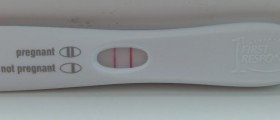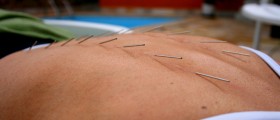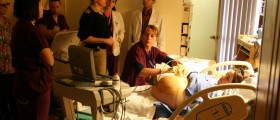
Getting to know your menstrual cycle may be one important step to take if you want to increase your chances of conceiving soon. But going to see your doctor for a preconception medical checkup, and working on your diet, (perhaps) weight, and cutting out detrimental choices such as smoking and drinking are just as important. On a sadder note, five miscarriage also happen every second on a global scale. Did you know that only 30 to 50 percent of all pregnancies ever progress beyond the first 12 weeks? One in four women knows all too well what it is like to suffer a pregnancy loss. The good news is that women who have suffered a miscarriage in the past only have a slightly increased chance of having another pregnancy loss later on in life.
Research shows that it is very safe to start trying to conceive again very soon after a miscarriage and also that women who try again within six months of miscarrying actually have a higher chance of getting pregnant quickly and of having a healthy pregnancy. Most first-trimester pregnancy losses are caused by birth defects and chromosomal abnormalities. In the vast majority of cases, there is nothing the woman could have done differently to prevent miscarriage. One thing that you may like to know is that the risk of miscarriage goes up with maternal age. The same holds true for birth defects and chromosomal abnormalities in babies. Are you trying to conceive? Here is a powerful message that there truly is no time like the present.
- www.cdc.gov/women/observances/index.htm
- www.cdc.gov/mmwr/volumes/66/wr/mm6615a5.htm
- Photo courtesy of PublicDomainPictures / 18043 via Pixabay : pixabay.com/en/pregnant-women-lady-girl-boy-214522/

















Your thoughts on this
Loading...